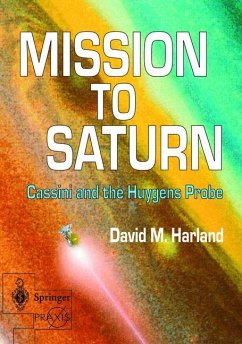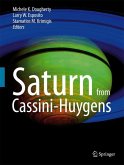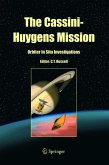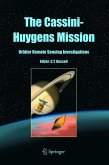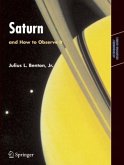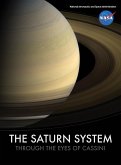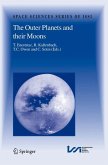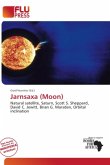Saturn is back in the news! The Cassini/Huygens spacecraft, a joint venture by NASA and the European Space Agency, is on its way to Saturn, where it will arrive in July 2004. During 2005 it will explore beneath the clouds of Titan, Saturn's largest moon and potential home for extraterrestrial life. Written by an established space historian and experienced author, Mission To Saturn - Cassini and the Huygens Probe is an up-to-date and timely review of our knowledge of Saturn and its enigmatic moon, Titan, on which the Huygens probe will land to search for prebiotic chemistry or even life. It explains how the mission was planned, how it will operate and, as the spacecraft nears its target, puts into context the discoveries that are sure to follow from this once-in-a-lifetime mission.
Hinweis: Dieser Artikel kann nur an eine deutsche Lieferadresse ausgeliefert werden.
Hinweis: Dieser Artikel kann nur an eine deutsche Lieferadresse ausgeliefert werden.
David Harland takes a long, serious look at Saturn from the first telescopic observations, the theorising about the rings, the early spectroscopy, the vistas and the science revealed by the spacecraft flybys of 1979, 1980 and 1981. Then he tackles the planning, building and journey of the Cassini orbiter, the most highly instrumented spacecraft ever dispatched on a deep space mission, and the Huygens Titan probe. Mission to Saturn is superbly illustrated, well referenced and an eminently readable book. - New Scientist.
"David Harland takes a long, serious look at Saturn from the first telescopic observations, the theorising about the rings, the early spectroscopy, the vistas and the science revealed by the spacecraft flybys of 1979, 1980 and 1981. Then he tackles the planning, building and journey of the Cassini orbiter, the most highly instrumented spacecraft ever dispatched on a deep space mission, and the Huygens Titan probe. Mission to Saturn is superbly illustrated, well referenced and an eminently readable book." - New Scientist
"We learned more about Saturn in one week than in the entire span of human history."
-Bradford Smith, Voyager Imaging Team Leader
"We learned more about Saturn in one week than in the entire span of human history."
-Bradford Smith, Voyager Imaging Team Leader

